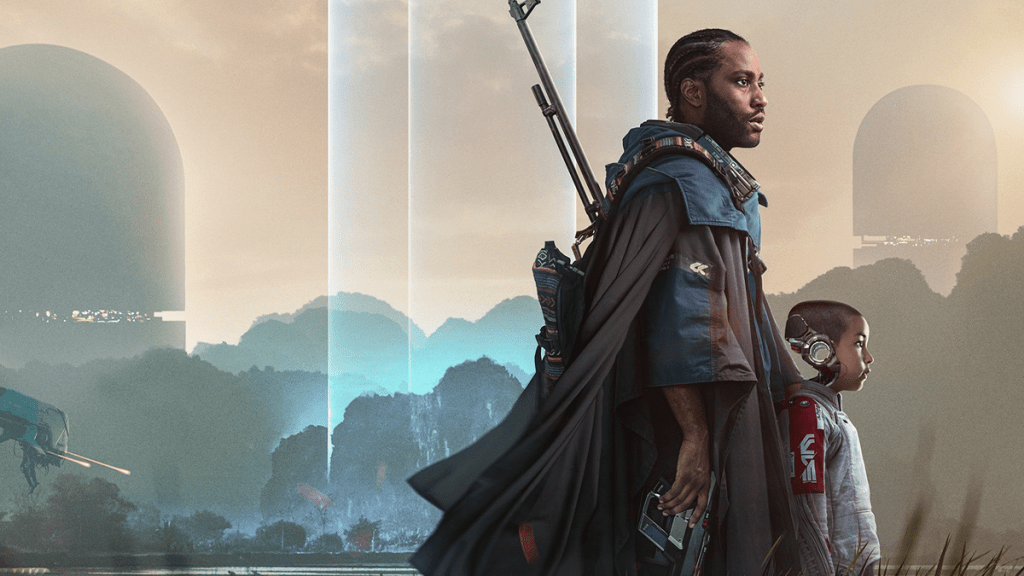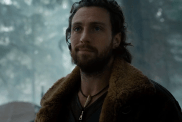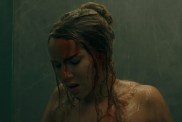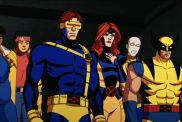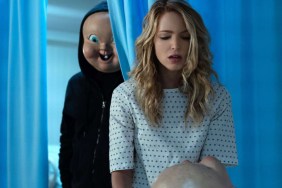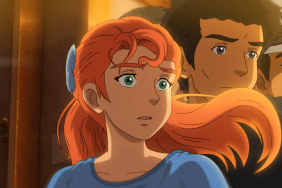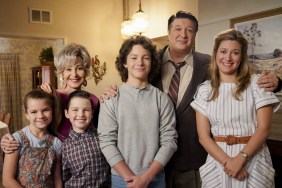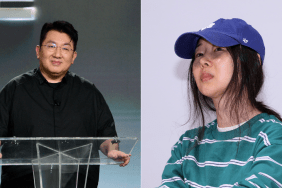ComingSoon Editor-in-Chief Tyler Treese spoke with The Creator director Gareth Edwards about the John David Washington-led sci-fi movie. The filmmaker discussed the process of creating a sci-fi world and his affinity for leaving some lore unexplained. The movie is now available to own digitally and physically.
“Amidst a future war between the human race and the forces of artificial intelligence, Joshua (John David Washington), a hardened ex-special forces agent grieving the disappearance of his wife (Gemma Chan), is recruited to hunt down and kill the Creator, the elusive architect of advanced AI who has developed a mysterious weapon with the power to end the war… and mankind itself,” reads the film‘s synopsis. “Joshua and his team of elite operatives journey across enemy lines, into the dark heart of AI-occupied territory … only to discover the world-ending weapon he’s been instructed to destroy is an AI in the form of a young child.”
Tyler Treese: With The Creator, you helped create such an intriguing sci-fi world. It’s one where you could have gone a lot of different directions with the story, and it would still stay compelling. What made you want to center this story between Joshua and Alphie? If that connection didn’t land with fans, it, it wouldn’t have worked, but thankfully, that bond is really great to watch unfold.
Gareth Edwards: There were various things that contributed to it. Around 2000, I used to do visual effects. I was working from home, and this film appeared on the TV, and it just captivated me instantly. There was something about the dynamic. I found out later it was Lone Wolf and Cub series of Japanese films, which is basically an old samurai Ronin and a young little Buddhist kid. I just loved that imagery and that dynamic of reluctant father/jaded warrior. It’s a trope now that’s been in a lot of things, but I always wanted to do a film like that for the longest time.
After Star Wars, I knew I wanted to make a film about AI or about Robots next, and I was just toying with different things. For the longest time, the polarity was a bit different, and I flipped it to be about the child being the robot and it suddenly became quite achievable. I like the idea of a story where it’s like Rain Man or something, where two opposite people who, ideally, are on opposite sides of a conflict — or enemies forced together to survive together on a journey or in a situation.
Through that journey, they learn from each other that the other person or the other side is not what they thought and, actually, we are all the same and that this idea of conflict and hate goes away when you spend time or have to lean on another person to survive. There’s a nice point about life, society, war, and everything with that central relationship. It just felt right. Obviously, if we hadn’t found the right child actor, it would’ve fell apart. I feel like incredibly lucky that we came across Madeleine [Yuna Voyles], who just was perfection, I think, in the way that she did the role.
Another aspect of the film I really enjoyed was the pacing. You really let the world soak in and you get to see how some of these cities operate and the different societies that are there. Can you speak to your approach of letting the story breathe and not rushing from place to place , allowing for those smaller moments?
Well, the approach was, “Film too much, have too much material, and then figure it out in the edit.” The first cut of the movie was like four-and-a-half-hours, and I had a very supportive production team and studio in that they knew we were filming too much a little bit, you know what I mean? They knew we were going to have too much material and that we would compress it. But what happens, in a nice way, I think, when you have too much is … you can feel it, I think, when you watch the film, that we shot a lot of scenes, but then we’re just taking shots from scenes, just little moments, and compressing them together and implying moments in their life or in their journey — just little tiny fragments of a much larger piece of time.
And it’s really hard to get those moments in a normal film because trying to convince the studio that we should go to the top of a mountain in Vietnam just get a shot of a boat … you know what I mean? It’s so expensive and crazy that all that stuff always goes away. You never get that flavor that you associate, say, with a Terrence Malick movie or something.
So it was really important to me that, for the last month of the shoot, we basically traveled to five different countries and took Madeleine and John David [Washington] with us, and just shot all this material that was very organic. We didn’t have specific scenes in mind. We just grabbed loads of things and improvised, and then in the edit, tried to pepper them throughout the movie in such a way that you can’t quite tell whether that was a scripted scene or that was just one of these documentary moments.
The language of the film flips quite a lot between a considered classical film, the way that the camera work is happening, and then to more of a documentary, organic style. It just keeps changing gears throughout. I really like that, personally, because I kind of have a schizophrenic filmmaking mind in that I grew up loving [Steven] Spielberg and I’ve always wanted to make films in the style of people like [Stanley] Kubrick and James Cameron and this very considered storyboarded cinematic thing.
But then, equally, my first film was more like a documentary, and I got a massive thrill out of how organic and exciting it was to have things happen that were not planned at all. I’m always trying to marry those two opposing styles, and I think in The Creator, I got the closest yet to getting that combination.
There’s been an obsession of getting every single detail when it comes to sci-fi from a fan’s perspective, but you leave some questions up in the air. We don’t get all the details. Can you speak to leaving room for interpretation?
I think it’s tricky, because when you do a drama and you show it to people, there are so many things they just understand naturally about the world, because we live in it every day. But when you do science fiction that’s set 50 years in the future, people start having loads of random questions about things that are really not important. They want to know, “How does everyone get here from here to there?” And you say, “In a bus.” “What kind of bus? Is it a floating bus or is it a jet copter?” You wouldn’t have those questions in a drama. If you suddenly cut to a character and they’re suddenly in a city, you just accept it, you know what I mean?
And you think, “Oh, they probably got the train, who cares?” But in a sci-fi movie, everyone wants everything explained all the time, or they think they do. If you start giving them that, you get a very boring film full of too much exposition. I feel like a science fiction film or a film about the future … the closest similarity is making a film about a foreign land. Say you make a movie in Japan or you watch a film that was made in Japan — you’re going to see loads of things that just don’t make sense to you, that are not part of your culture, that you won’t understand, and the film will just brush over them.
It’s left to you and your imagination to fill the gaps. I feel like that’s my favorite thing to say about Star Wars, is that there’s a shot in Mos Eisley where suddenly these two feet just walk in front of frame, like a giant animal in front of the camera, and they never pull wide and show you what that animal is.
There’s never a story about what the animal was. There are so many details — dozens, all the time in Star Wars where it’s just left to your imagination. That’s what makes it exciting, is the audience gets to think about and not have all the answers and, in their mind, fantasize about what’s going on in that world. I love all that.
I don’t think films should provide all the answers. They should just ask questions and let the audience have a think about it and take ownership of it. That’s the interactivity of a film, is when you, the audience, has something to do. They’re playing a role in this film as well, and they’re having to construct the world in their head. You might have arguments in the car on the way home about what something meant or what you interpreted from that, and I think that difference of opinion keeps the film alive.
